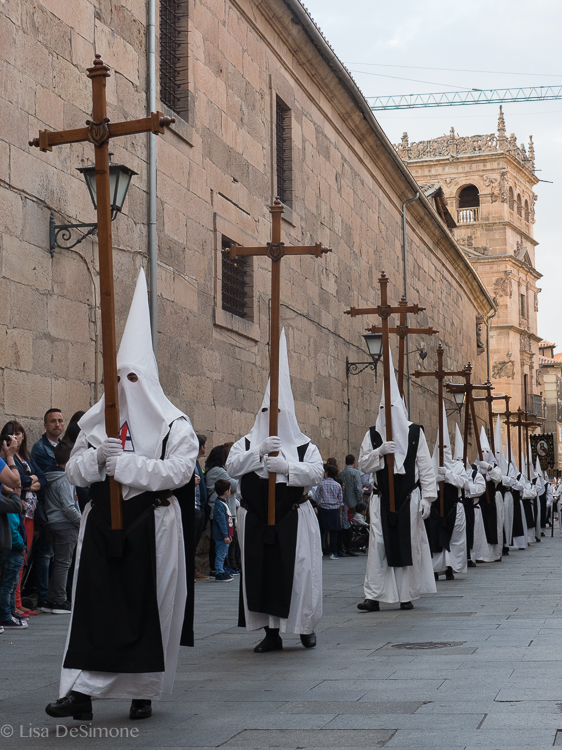Dear Tig,
I just lost half an hour of work when I tried to fetch the link below while working in my iPhone Photography App.
VERY FRUSTRATING.
And now I contemplate upon another half hour digging my way out of the whole.
As you probably know, I am immersed in the massive work of cleaning out my basement where 55 years of correspondence and other writings are boxed, much of that material brought to me by my Mom as she headed south to spend winters in Florida.
I had nothing to do with with her decision, but -- even as a non-academic person -- my mother sensed that these writings were important to me, or I would not have set them aside. And so, as part of her own late-life "cleaning out," she brought them to me - from Irondequoit to Hillsborough.
In one of those boxes I came upon a postcard featuring St. Apollonaris which you sent me in 1985 when I was living twisty-high up on Snake Road in the Oakland Hills.
Initially, I mistook St. Apollonaris for St. Apollonia and said to myself: "I must send Tig my old post titled "St. Apollonia And A Hundred Medieval Holidays /// The Lost Art Of Catholic Drinking."
Then, even after realizing my error, I stuck to my new resolve to send you the link anyhow.
"St. Apollonia And A Hundred Medieval Holidays /// The Lost Art Of Catholic Drinking" reveals the submerged reality of Catholicism as it has been lived by most Christians -- and an even larger percentage of poor Christians -- ever since the church formed in the 1st Century anno Domini.
The reason why this "common-folk" reality of Catholic culture became -- and remains -- hidden to you and me is because I -- and all the Catholics I knew during my formative years -- were middle class people.
And since "class structure" has always been criss-crossed with remarkably impermeable barriers, it wasn't until I went to Mexico in the summer of '67 that I realized "what" this larger catholic world "was" - a world where clergy let the common folk (mostly agricultural folk) live in their realm of legend, myth, fairy tale, piety, devotion (much of it dating back to pre-Columbian "paganism") -- and perhaps most of all "the lives of the saints" experienced through myth, legend and fairy tale with admixtures of historical fact.
St. Lucy's eyes.
Hot cross buns.
Fish-on-Friday.
And all the other innumerable manifestations.
Those mongrel narratives merged, ramified and grew into the thousand and one customs -- artistic, artisanal, culinary, liturgical, ritual, behavioral -- that comprised an astonishingly rich "matrix of meaning," a gestalt that dwarfed the significance of Saturday morning cartoons, after-school Disney characters, and made-in-Hollywood Super-Heroes.
And it is that simple, faithful, mystery of Catholic culture that I (and so many other norteños) have fallen in love with: cultural matrices that are intact, whole, community-based, community-crafted - communities that are (or so I have always felt), more real than the packaged calculations of The Utilitarian North, bent as they are on the commercial goal of making people crave fabricated necessities. And the upshot is that purchasable pleasures replaced the undivided joy of living in communities (mostly religious communities) as well as the "three generation families" that have always constituted them.
In any event, there you have it.
And here we are.
You and I with our largely individualistic, separate (and separating) understandings, without that bedrock cultural-communitarian glue that was palpable in my late 60s and early 70s experience of Latin America when, after ten thousand years "the commons" was closed and the irrepressible invasion of the "consumerist model" took deep root, displacing human value with monetary price-cost.
And we all felt so modern - and advanced.
Cutting edge.
Avant guarde.
Modern.
Post-modern.
And now, in culmination, Trumpist.
Meaningless and worse.
Although what can be worse than the evaporation -- the disappearance -- of meaning?
Shortly after the English commons closed and industrial workers became rootless and interchangeable, Oscar Wilde observed that "a cynic is someone who knows the price of everything and the value of nothing." (It is, I think, deeply significant that I always remember the subject of Wilde's sentence being "Americans" and not "cynics.")
I hope Saint Apollonia and a hundred medieval holidays leads you back - however briefly - to that pre-electronic world, before the subdivision of labor deconstructed humankind's diffuse artistry whose best known remnant here in gringolandia is New Orleans mardi gras... and any number of vestigial festivals mostly put together by vendors, rather than rising spontaneously as an outgrowth of people living in eager expectation of what their creative community would devise next.


No comments:
Post a Comment